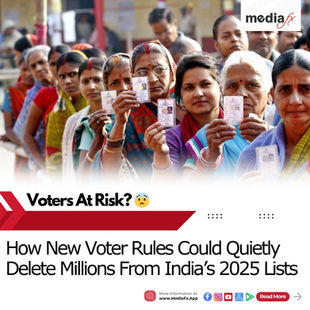💧💡 Privatizing Essentials: When Profits Drain the People! 💸🚱
- MediaFx

- Dec 18, 2024
- 2 min read
TL;DR: Privatizing basic services like water and electricity often leads to higher costs, poorer quality, and neglect of public welfare. Examples from countries like the UK and Bolivia show that such moves can harm communities, especially the working class. Hey folks! 🌟 Let's chat about something super important: our basic needs like water and electricity. 💧⚡ There's a big push to let private companies run these services, but is it really a good idea? 🤔

What's the Deal with Privatization?
Privatization means handing over public services to private companies. The idea is that businesses, driven by profit, will run things more efficiently. But when it comes to essentials like water and power, this doesn't always work out.
UK's Water Woes
In the UK, water services were privatized with promises of better quality and investment. But guess what? Since then, companies have paid out a whopping £72 billion to shareholders while racking up £60 billion in debt. This means less money for fixing pipes and keeping water clean. Many folks have seen their bills go up, and there have been scandals about untreated sewage being dumped into rivers. Now, there's a big debate about bringing water services back into public hands.
Bolivia's Battle for Water
In Cochabamba, Bolivia, the government privatized water services in the late '90s. Prices skyrocketed, and even collecting rainwater was restricted! This led to massive protests known as the Cochabamba Water War. The people won, and the privatization was reversed, but the struggle showed how privatization can go wrong.
Why Does This Happen?
Private companies aim to make profits. When they run essential services, they might cut corners, raise prices, or neglect areas that aren't profitable. This can lead to:
Higher Costs: Without competition, private companies can hike up prices. In the UK, water bills rose rapidly after privatization.
Poor Service: To save money, companies might skimp on maintenance, leading to issues like leaks or power outages.
Health Risks: Neglect can result in unsafe drinking water or unreliable electricity, posing direct threats to people's well-being.
The Working Class Pays the Price
When essentials become expensive or unreliable, it's the working class that suffers most. Families might have to choose between paying for water or other necessities. In some cases, like in Tanzania, privatization led to such poor service that the government had to step back in.
Is There a Better Way?
Many believe that keeping essential services public ensures they're run for the people's benefit, not for profit. Public ownership can focus on providing quality service to everyone, investing in infrastructure, and keeping prices fair. For example, Paris took back control of its water services in 2010, leading to lower bills and higher customer satisfaction.
Join the Conversation!
What do you think? Should essential services like water and electricity be privatized, or should they stay in public hands? Share your thoughts in the comments below! 🗣️👇













































